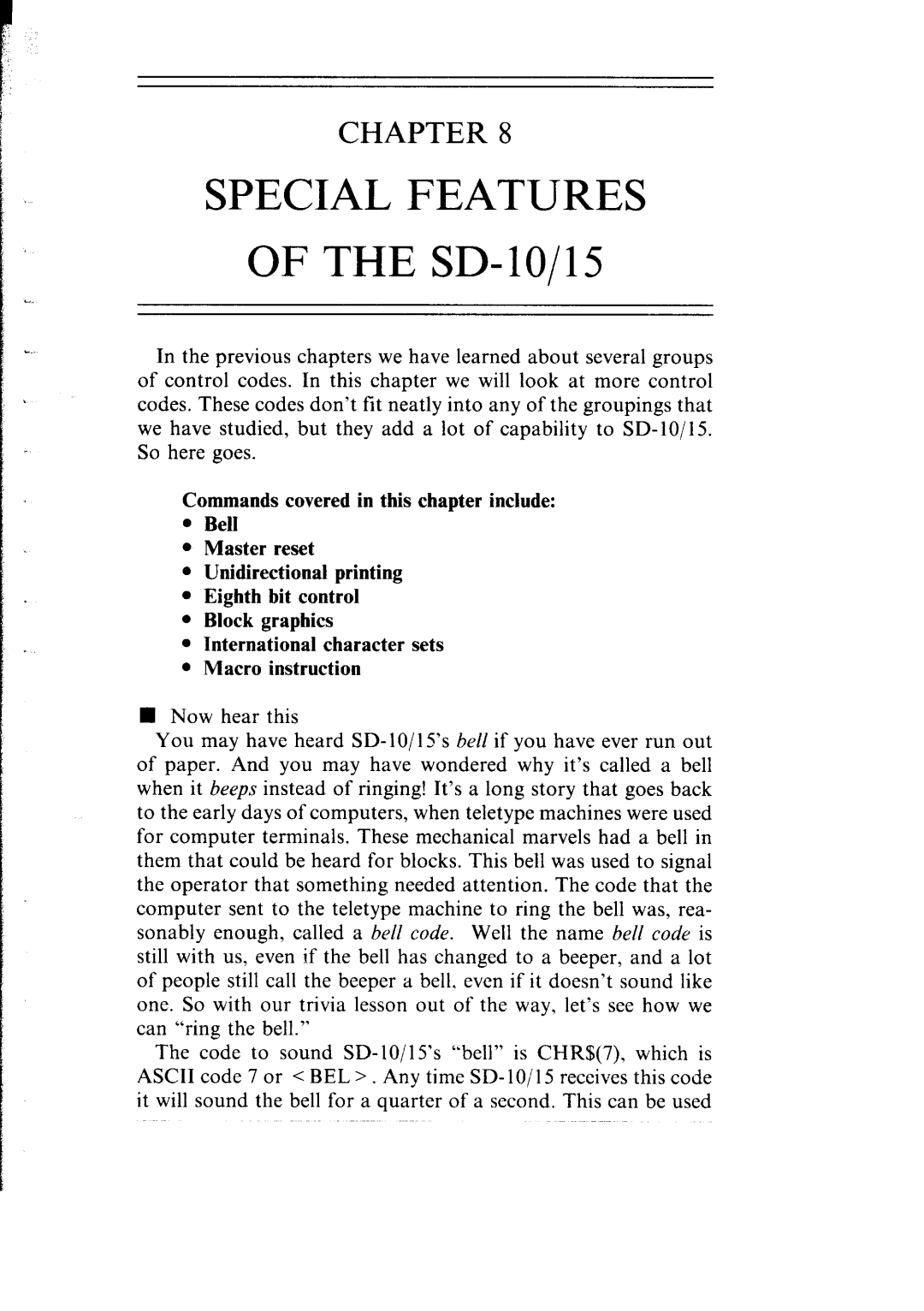
I :?
!
CHAPTER 8
SPECIAL FEATURES
OF THE SD-lo/l5
In the previous chapters we have learned about several groups of control codes. In this chapter we will look at more control codes. These codes don’t fit neatly into any of the groupings that we have studied, but they add a lot of capability to
Commands covered in this chapter include:
•Bell
•Master reset
•Unidirectional printing
•Eighth bit control
•Block graphics
•International character sets
•Macro instruction
nNow hear this
You may have heard SD- 10/l 5’s bell if you have ever run out of paper. And you may have wondered why it’s called a bell when it beeps instead of ringing! It’s a long story that goes back to the early days of computers, when teletype machines were used for computer terminals. These mechanical marvels had a bell in them that could be heard for blocks. This bell was used to signal the operator that something needed attention. The code that the computer sent to the teletype machine to ring the bell was, rea- sonably enough, called a bell code. Well the name bell code is still with us, even if the bell has changed to a beeper, and a lot of people still call the beeper a bell, even if it doesn’t sound like one. So with our trivia lesson out of the way, let’s see how we can “ring the bell.”
The code to sound SD- 10/l 5’s “bell” is CHR$(7), which is ASCII code 7 or < BEL > . Any time SD- 10/l 5 receives this code it will sound the bell for a quarter of a second. This can be used
